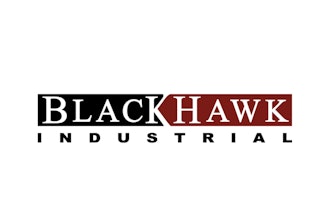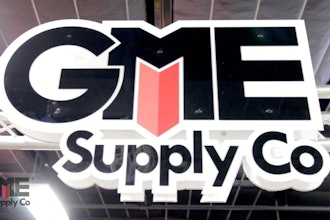
This article originally appeared in the July/August print edition of Industrial Distribution. To view the full digital edition, click here.
Assume that your business is nationwide, even if you have offices only in a few states. Assume, further, that servicing your customers is heavily dependent on key employees serving a region (even if the business crosses states lines) from a particular office. Then, one day, your key employees form a company, with a name deceptively similar to your trade or business name (even if subject to state or federal trademark protection), and divert (or attempt to divert) your company’s business to the new company. To add insult to injury, they do so while on your payroll, take key customer and other files, plus data from your computers, delete all electronic evidence in an attempt to cover their tracks, and distribute letters to key customers on their attorney’s letter head that your company is not even authorized to do business in the state where their office is located. Even though the loss of “foreign registration” flowed from a technical oversight (failure to file a $30 form), these employees also “poach” your company’s exact name (by creating a new entity with the same name) to block reinstatement of that registration.
Assume further that you have invested millions of dollars to build not only your brand, nationwide, but also to build the regional business serviced by the local branch. Obviously, from a business perspective, one cannot simply flush this type of investment down the proverbial toilet, nor tolerate such blatant misconduct. Further, the business must seek to recover the loss of the customers and the corresponding revenue. Finally, from a business and legal viewpoint, the company must ensure that the “word” within the organization is that the company will not sit idly by and do nothing in the face of such misconduct — lest other employees in different locations get similar ideas. As such, suit must be filed and aggressive litigation action taken.
These facts are those that underpin a case that was just initiated, but was a plan that was stopped (at great cost) by way of temporary restraining orders and preliminary injunctions based on violations of the unfair competition rules existing under the federal Lanham Act, the federal Computer Fraud and Abuse Act, and state laws prohibiting deceptive trade practices, trade secret misappropriation, interference with established business relationships, fiduciary duty violations, and conspiracy. It is noteworthy that nowhere in this description of the case is there any mention of a covenant not to compete or other agreements limiting post-employment solicitation and/or interference with business relationships (e.g., customer, vendor, employee, etc.) — as here the key employees never signed any such documents (i.e., “post-employment restrictive covenants”).
Why do cases like this happen? And, what can be done to prevent this type of problem?
- Even if there had been no post-employment restrictive covenant agreements in place in this case, the mind-set of employees in similar cases, in our experience, is that such are not enforceable and/or simply can be ignored (based on any number or rationales). Often times such conclusions are aided by counsel advising that the “non-compete” is illegal or can be beat in court.
- Nonetheless, post-employment restrictive covenants can be a valuable tool in seeking to prevent this type of mishap, and should be regularly reviewed by counsel to ensure that proper agreements are in place, not only to protect legitimate customer, vendor, and employee interests, but also to help protect proprietary information — both hard copy and electronically stored information.
- Given the ever-changing landscape of the law on post-employment restrictive covenants (in large part tightening the noose around the neck of post-employment restrictive covenants), this type of “audit” should be undertaken on a regular basis, and upgrades made to protect legitimate business interests. A state-by-state analysis is critical. • Similarly, attention to small details should be regularly audited. A docket should be maintained of all foreign entity registrations and business license renewals, just as much as one is for tax filings and insurance payments.
- The same holds true for state and/or federal trademark registrations – which at the federal level require for example the filing of affidavits of continued use, and the payment of fees, and which vary at the state. Assumed business names and similar filings must also be regularly audited for compliance with state requirements and fee payments.
Finally, all businesses have, use and rely on proprietary information, some of which may rise to the level of a protectable trade secret, under various laws, and much of which is stored on computers. An annual check-up of the nature and storage of such information, and policies and agreements that are related to the use, access to and maintenance of such assets, is likewise critical to any business.
For those distributors interested in this topic, please contact Fred Mendelsohn at [email protected] or 312-840-7004.



















